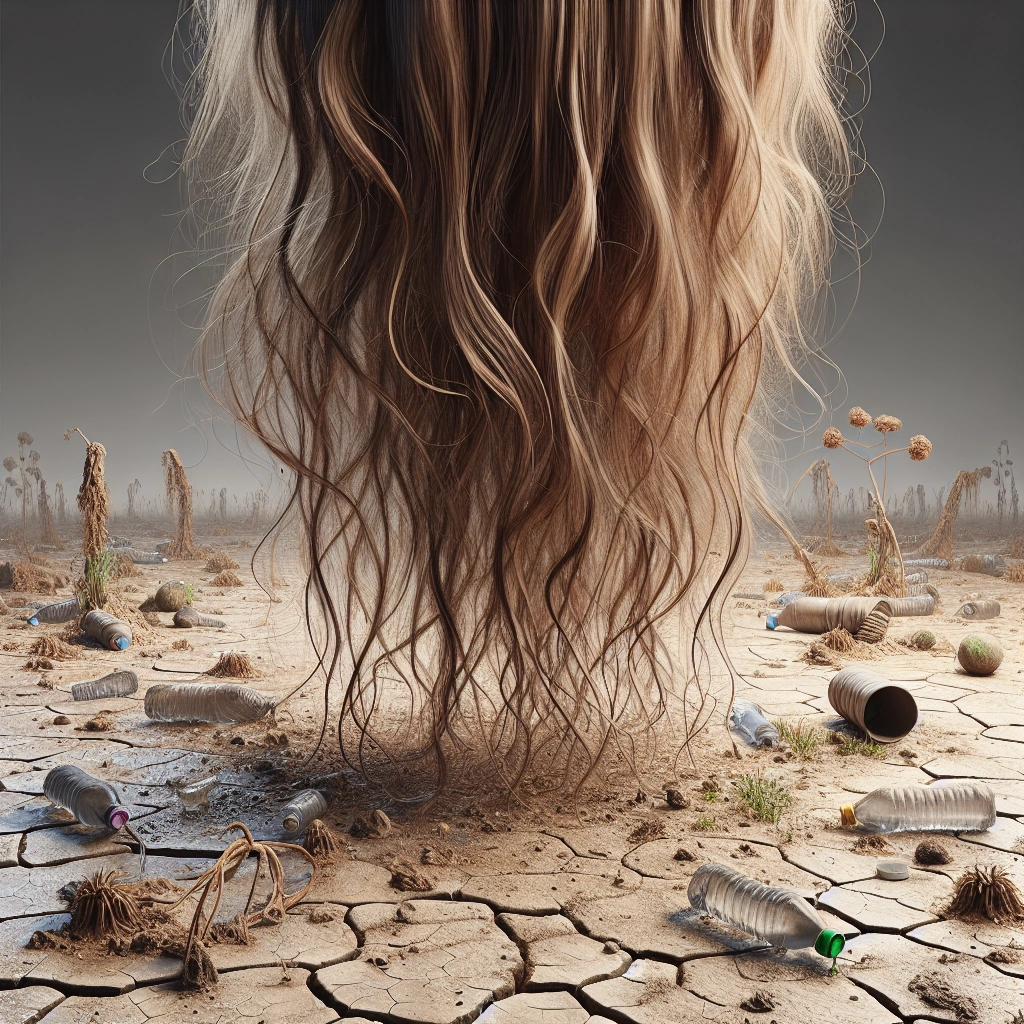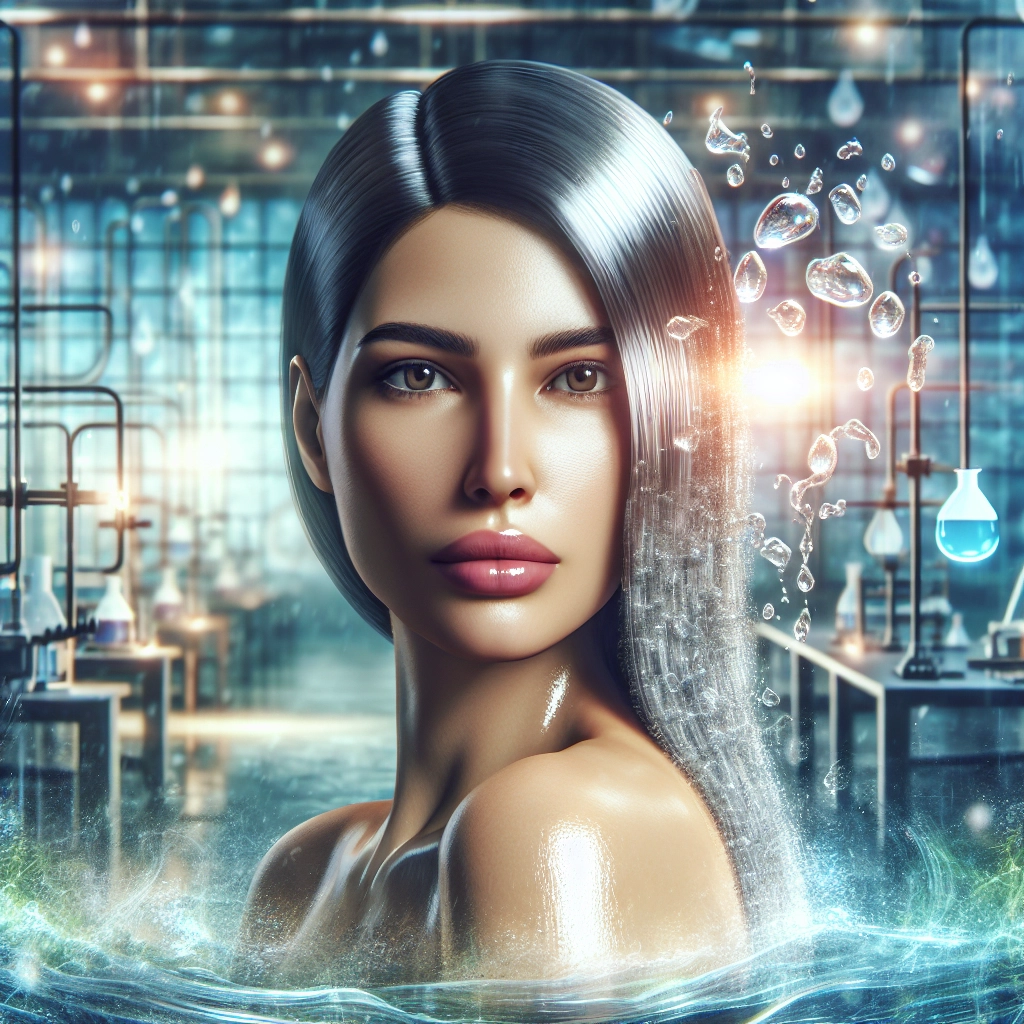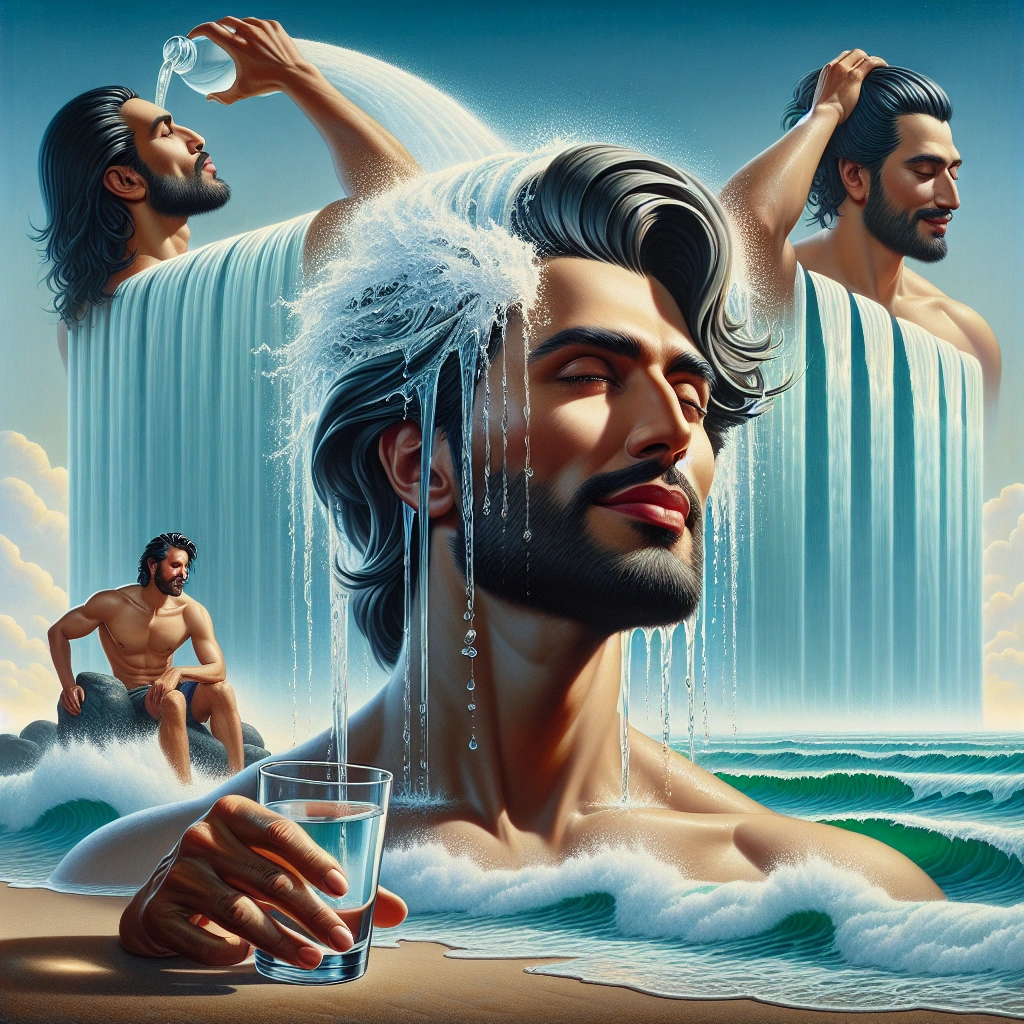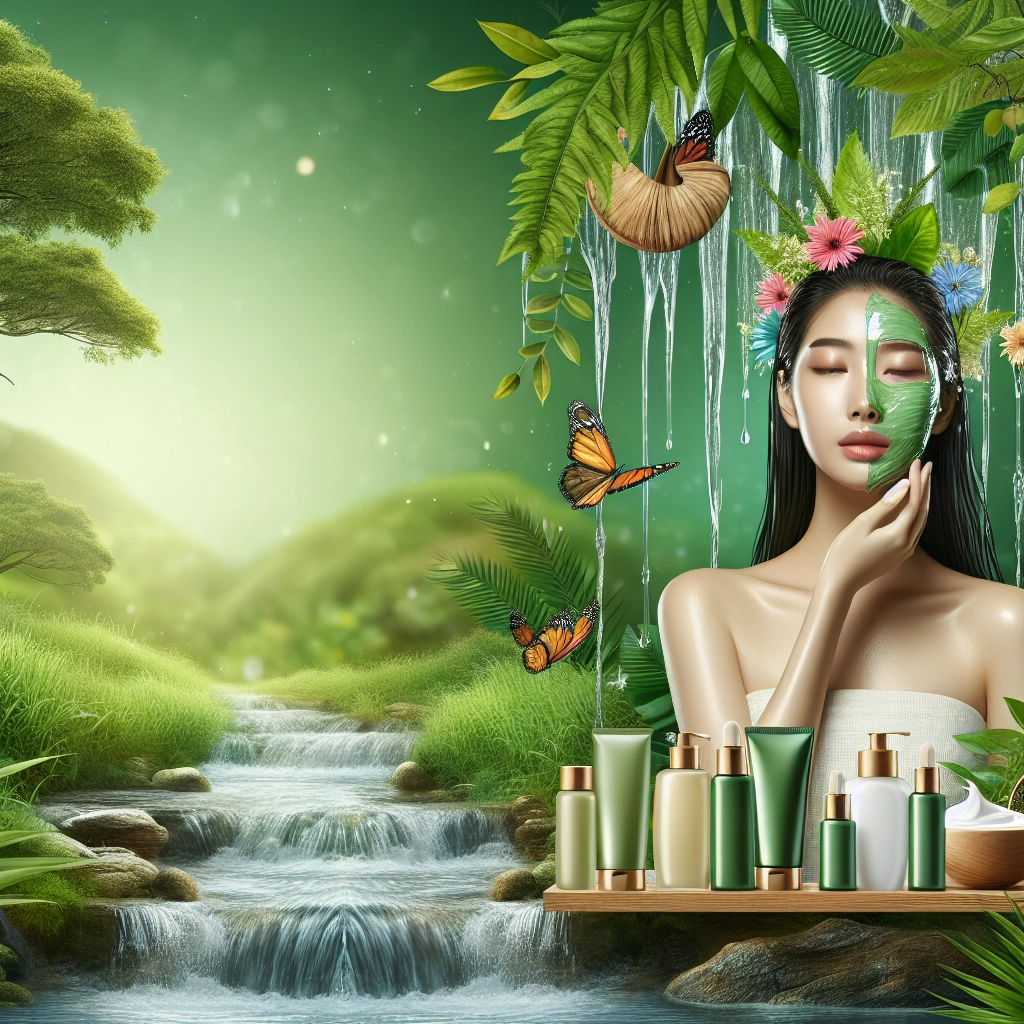

Hydration in hair health and wellness refers to the presence of adequate moisture in the hair strands and scalp. It is essential for maintaining the strength, volume, and overall health of the hair.
Maintaining hydrated hair is important as it prevents dryness, brittleness, and split ends, and helps in maintaining hair texture, volume, and overall appearance.
Proper hydration directly impacts hair growth, prevents hair loss, and promotes healthier, lustrous hair.
Understanding Hair Hydration
The structure of hair strands
Each hair consists of a hair shaft and a hair root, surrounded by a hair follicle and connected to a sebaceous gland. The three main layers of the hair are the cuticle, the cortex, and the medulla.
These layers collectively contribute to the strength, elasticity, and overall health of the hair.
How hydration affects hair health
Hydration plays a pivotal role in maintaining the overall health and appearance of the hair. Adequate hydration prevents dryness, brittleness, and breakage, ensuring that the hair retains its natural shine and strength.
Additionally, well-hydrated hair is less prone to frizz and split ends, contributing to a lustrous and manageable hairstyle.
The role of water and moisture in hair hydration
Water and moisture are essential components of hair hydration. Water is responsible for permeating the inner layers of the hair, such as the medulla and cortex, ensuring that the hair remains hydrated from within.
On the other hand, moisture, regulated by natural oils, focuses on the outermost layer of the hair, the cuticle, preventing the rapid evaporation of water and maintaining the hair’s overall moisture balance.
Common causes of hair dehydration
Several factors can contribute to hair dehydration, including environmental conditions, excessive heat styling, chemical treatments, and prolonged exposure to the sun. Additionally, inadequate water intake, poor nutrition, and certain medications can also impact the hydration levels of the hair, leading to dryness, dullness, and potential damage.
Signs of Dehydrated Hair
Dull and lackluster appearance
Dehydrated hair tends to have a lackluster appearance, lacking shine and vibrancy, which can make it look dull and lifeless.
Brittle and prone to breakage
When hair lacks proper hydration, it becomes brittle and more susceptible to breakage, leading to split ends and frayed strands.
Itchy and flaky scalp
Dehydration can cause the scalp to become itchy and flaky, leading to discomfort and the appearance of dandruff.
Difficulty with styling and managing hair
Dehydrated hair is often challenging to style and manage, as it can become unruly, difficult to detangle, and resistant to holding a desired hairstyle.
Benefits of Hydrated Hair
Improved elasticity and flexibility
Hydrated hair exhibits improved elasticity and flexibility, allowing it to bounce back from styling and environmental stress with ease.
Enhanced shine and smoothness
Proper hydration results in enhanced shine and smoothness, giving hair a healthy and lustrous appearance that reflects light beautifully.
Better moisture retention
Hydrated hair retains moisture more effectively, leading to improved overall hair health and resilience against dryness and damage.
Prevention of split ends and breakage
By maintaining optimal hydration levels, hair is less prone to split ends and breakage, promoting longer-lasting and healthier strands.
Impact of Hydration on Scalp Health
The connection between hydrated hair and a healthy scalp
Maintaining well-hydrated hair is essential for a healthy scalp. When your hair is properly hydrated, it helps to prevent the scalp from drying out, reducing the risk of dandruff and other related issues.
Reduction in dandruff and dryness
Proper hydration significantly reduces the occurrence of dandruff and dryness on the scalp. Well-hydrated hair helps to maintain the scalp’s natural moisture balance, preventing the flaking and discomfort associated with dandruff.
Promotion of proper oil balance
Hydration plays a vital role in promoting the proper balance of oils on the scalp. When the hair and scalp are well-hydrated, it helps to regulate the production of natural oils, preventing excessive dryness or oiliness.
Prevention of scalp irritation and inflammation
Adequate hydration of the scalp aids in preventing irritation and inflammation. It helps to maintain the scalp’s natural moisture levels, reducing the likelihood of discomfort and inflammation caused by dryness.
Hydration Methods for Hair
For maintaining proper hair hydration, a routine should include regular washing with a gentle shampoo, followed by conditioning with a moisturizing product. It’s also essential to minimize heat exposure and avoid over-washing, which can strip the hair of its natural oils.
Recommended products for maintaining hair moisture include leave-in conditioners, hair masks, and serums. It’s crucial to choose products specifically formulated for your hair type and concerns.
Look for ingredients like coconut oil, shea butter, and glycerin for optimal hydration.
Techniques for deep conditioning and hydration treatments involve applying a generous amount of conditioner or mask to clean, damp hair, then covering it with a shower cap or towel. Leave the product on for at least 30 minutes to allow deep penetration before thoroughly rinsing it out.
| Hydration Products | Description |
|---|---|
| Leave-in Conditioners | Lightweight formulas that moisturize and protect hair throughout the day |
| Hair Masks | Intensive treatments that deeply nourish and hydrate the hair, often used once a week |
| Serums | Concentrated products to add shine and manageability while sealing in moisture |
The Role of Diet and Hydration
Water intake plays a crucial role in maintaining hair health by keeping the scalp and hair follicles hydrated, preventing issues such as dandruff, itchiness, and dryness, and supporting overall hair growth.
How water intake affects hair health
Adequate water intake ensures that the hair follicles receive the necessary hydration, promoting hair growth and preventing dryness, brittleness, and scalp issues like dandruff.
Nutrients and vitamins essential for hydrated hair
Essential nutrients and vitamins such as B vitamins, vitamin A, E, and D, along with minerals like iron and omega-3 fatty acids, contribute to hydrated and healthy hair by nourishing the scalp and supporting hair growth.
The impact of dehydration on hair and scalp health
Dehydration can negatively impact hair health, leading to dry and brittle hair, scalp itching, and even hair loss. Reduced hydration levels can slow down new hair growth and affect the overall health of the scalp and hair.
Environmental Factors and Hydration
The effects of sun exposure, heat, and humidity on hair hydration
Prolonged sun exposure and heat can lead to moisture loss in the hair, making it more susceptible to dryness and breakage. The sun’s UV rays can also damage the hair’s protein structure, causing brittleness and weakness.
Additionally, humidity can impact hair by affecting its moisture retention, potentially leading to frizz and overall loss of hydration.
How to protect hair from environmental damage
To safeguard your hair from environmental damage, consider using protective wear like hats, scarves, or helmets, especially when in polluted areas. This helps prevent pollutants from depositing on your hair.
Additionally, use hair products with UV filters, incorporate antioxidants into your haircare routine, and consider a humidifier at home to combat the effects of dry climate.
Tips for maintaining hair hydration in different climates
In dry climates, it’s crucial to focus on moisturizing and retaining natural oils in the hair. Using light, non-greasy products like argan oil or jojoba oil can help maintain hair hydration without weighing it down.
In humid climates, it’s essential to use products with humectant properties like glycerin or hyaluronic acid to combat the moisture content in the air and prevent excessive dryness.
| Climate Type | Tips for Hair Hydration |
|---|---|
| Dry | Use light, non-greasy moisturizing products |
| Humid | Use products with humectant properties like glycerin |
Over-hydration and Hair Health
The risks of over-moisturizing hair
Over-moisturizing hair can lead to a condition called hygral fatigue, causing it to become weak and more prone to breakage. When each cuticle is heavily coated with excess moisture, it prevents other hair products like oils and serums from penetrating the hair cuticle effectively, resulting in loss of hair volume and reduced efficacy of hair products.
Signs of excessive hydration
Excessive hydration can manifest through various signs such as hair feeling mushy, limp, excessively soft, and losing its volume. Curls may struggle to hold their shape, leading to little definition and increased frizziness.
Additionally, symptoms of hygral fatigue may include tangling, dullness, brittleness, constant hair breakage, and a gummy texture.
Balancing hydration to avoid issues with hair health
It’s important to strike a delicate balance between moisture and protein in hair. Too much moisture can cause hair to feel mushy, fall flat, and become frizzy.
This imbalance can lead to damage over time, emphasizing the need for maintaining a healthy texture and weight through balanced hydration and proper protein levels in hair care routines.
Hydration Myths and Misconceptions
Debunking common myths about hair hydration: Many people believe that brushing hair frequently can distribute natural oils evenly throughout hair, keeping it hydrated. However, over-brushing can actually damage the hair and make it more prone to breakage.
Addressing misconceptions about maintaining hair moisture: One of the biggest misconceptions is that plant oils hydrate the hair. Hydration means adding water, and by their nature, plant oils are anhydrous and do not provide hydration to the hair.
Educating on proper hydration practices: It’s crucial to use products with ingredients that hydrate and moisturize the hair such as avocado, coconut, olive, and almond oils, aloe vera, and shea butter. Additionally, practicing the Maximum Hydration Method can systematically increase moisture levels in the hair until max hydration is achieved.
| Myth | Fact |
|---|---|
| Brushing hair frequently keeps it hydrated | Over-brushing damages the hair |
| Plant oils hydrate the hair | Plant oils are anhydrous and do not provide hydration |
| Dry hair needs more moisture, so wash it more | Over-washing does not make hair healthy and hydrated |
| Natural hair doesn’t grow | Natural hair grows at a similar rate to other hair types |
By addressing these myths and misconceptions, individuals can better understand how to maintain proper hair hydration and overall hair health and wellness.
Impact of Hydration on Different Hair Types
Hydration needs for curly, straight, and wavy hair
Each hair type has unique hydration needs:
– Curly Hair: Curly hair tends to be drier and requires more hydration due to its spiral shape, which makes it difficult for natural oils to travel down the hair shaft.
– Straight Hair: On the other hand, straight hair usually has a smoother cuticle and may require less hydration as the natural oils can easily distribute along the hair shaft.
– Wavy Hair: Wavy hair falls between the two and benefits from moderate hydration to maintain its natural texture.
Tips for maintaining hydration in various hair textures
Here are some tips for maintaining hydration based on hair textures:
– Curly Hair: Use a leave-in conditioner and natural oils like argan oil to retain moisture and define curls.
– Straight Hair: Opt for lighter hydrating products and avoid heavy conditioners that can weigh down straight hair.
– Wavy Hair: A balance between the hydration needs of curly and straight hair, using hydrating shampoos and lightweight leave-in conditioners is ideal.
The unique challenges of hydration for different hair types
Challenges differ based on hair textures:
– Curly Hair: Frizz and dryness are common challenges, requiring regular hydration and moisturizing products.
– Straight Hair: Striking a balance is necessary as over-hydration can lead to greasiness, while under-hydration can cause brittleness.
– Wavy Hair: Managing waviness while avoiding excessive hydration is crucial for maintaining a defined, frizz-free texture.
Hydration and Chemical Processes
The impact of coloring, perming, and relaxing on hair hydration
Coloring, perming, and relaxing procedures can strip the hair of its natural moisture, leading to dryness and dullness. These chemical processes break down the internal protein structure of the hair, making it more susceptible to damage and dehydration.
Tips for maintaining hydration during and after chemical treatments
To maintain hydration during and after chemical treatments, it is crucial to use hydrating and nourishing hair products specifically designed for color-treated or chemically processed hair. Additionally, minimizing the frequency of washing can help retain natural oils and moisture.
Regular deep conditioning and moisturizing treatments are also essential to replenish lost hydration.
How to repair and restore hydration post-chemical processes
Post-chemical processes, repairing and restoring hydration in the hair can be achieved through deep conditioning treatments, leave-in conditioners, and hair masks. This helps in replenishing moisture and repairing the damage caused by chemical procedures, thereby restoring the hair’s natural hydration levels to promote overall hair health and wellness.
Hydration for Men’s Hair
When it comes to hydration, men’s hair has specific needs that differ from women’s. Men often have shorter hair, which means the natural oils from the scalp are distributed less evenly, leading to potential dryness.
As a result, men’s hair requires more frequent hydration to maintain its health and luster, compared to women’s hair.
Differences in hair hydration needs for men
Due to the typically shorter length of men’s hair, it tends to get greasy more quickly, making it essential to find a balance in hydration. Men’s hair also faces challenges like scalp dryness and flakiness due to these differences in natural oil distribution.
Therefore, it’s crucial to choose hair hydrating products that address these specific needs without adding excess oils.
Recommended products and routines for men’s hair
For optimal hydration, men should opt for lightweight, hydrating shampoos and conditioners that replenish moisture without weighing the hair down. Additionally, incorporating a moisturizing hair mask or leave-in conditioner into the weekly hair care routine can help address any hydration issues and maintain overall hair wellness.
Addressing common hydration issues in men’s hair
Common hydration concerns for men’s hair include dryness, brittleness, and flakiness, all of which can be effectively addressed with proper hydration. An effective routine involves using hydrating hair products, such as shampoos and conditioners designed specifically for men’s hair, and incorporating regular deep conditioning treatments to combat these issues.
Hydration and Hair Growth
The connection between hydration and hair growth
Drinking an adequate amount of water is crucial for maintaining healthy hair growth. Proper hydration ensures that the hair follicles receive essential nutrients, promoting robust and lustrous hair growth.
Promoting healthy hair growth through proper hydration
Hydration plays a pivotal role in promoting healthy hair growth by nourishing the scalp and hair follicles. Adequate water intake supports the transportation of vital nutrients to the hair roots, contributing to enhanced hair texture and strength.
Impact of dehydration on hair loss and thinning
Dehydration can have a detrimental impact on hair health, leading to issues such as hair loss and thinning. Insufficient hydration deprives the scalp and hair of essential moisture, resulting in brittle, dry, and fragile hair that is prone to breakage and thinning.
Case Studies and Success Stories
Personal anecdotes of improved hair health through hydration
One personal anecdote of improved hair health through hydration is Eliza’s story. She suffered from dry and brittle hair for years, trying numerous expensive products without success. However, after increasing her water intake and maintaining proper hydration levels, she noticed a significant improvement in the texture and shine of her hair.
Success stories of individuals who transformed their hair through hydration
An inspiring success story of hair transformation through hydration is Mike’s journey. Dealing with severe hair thinning and breakage, Mike decided to prioritize hydration by drinking more water and using moisturizing hair products. Within a few months, he experienced noticeable regrowth and stronger, healthier hair.
How proper hydration resolved specific hair issues
| Specific Hair Issue | Resolution through Hydration |
|---|---|
| Dry and Brittle Hair | Increased moisture retention and improved texture |
| Hair Thinning | Enhanced regrowth and reduced breakage |
| Lackluster Appearance | Restored shine and vibrancy |
The Future of Hair Hydration
Advancements in hair hydration technologies
The future of hair hydration is looking bright with cutting-edge advancements in hair hydration technologies. Companies are leveraging innovative techniques to develop products that deeply penetrate the hair shaft, locking in moisture and promoting overall hair health.
These advancements include the use of lamellar technology and wonder water treatments, which provide lightweight yet highly effective formulas that spread throughout the hair quickly, ensuring optimal hydration. Researchers are also exploring biotechnology to develop functional proteins and peptides that can transform hair properties, such as strength, shape, volume, and moisture retention.
Emerging trends in hair care for maintaining hydration
In the realm of hair care, emerging trends are focused on maintaining optimal hydration for healthier and more vibrant hair. One prominent trend is the emphasis on sustainability, as companies are striving to reduce water usage and waste in their hair care products.
Additionally, the market is witnessing a shift towards products that not only enhance the aesthetic appearance of hair but also promote scalp and hair health. Key innovations encompass cuticle barrier protection, hair strengthening peptides, and improved styling flexibility, catering to the evolving needs of consumers seeking long-term hydration solutions.
The impact of technology on improving hair hydration
Technological advancements are significantly impacting the improvement of hair hydration. New technologies are addressing the sustainability and effectiveness of hair care, leading to a substantial increase in sales and consumer demand.
These innovations are not only enhancing the efficacy of hair care products but also contributing to the overall health and wellness of the hair. With the global hair care market projected to reach unprecedented figures by 2024, these technological breakthroughs are poised to revolutionize the way individuals approach hair hydration and wellness.
| Hair Hydration Technologies | Impact |
|---|---|
| Lamellar technology | Lightweight and effective hydration spread |
| Wonder water treatments | Rapid hydration penetration for hair wellness |
| Functional proteins & peptides | Transformation of hair properties |
Recommended Amazon Products for Hair Hydration
Here’s a curated list of products that can help you achieve proper hair hydration with ease. These recommendations are based on functionality, price, and positive reviews.
Olaplex No. 3 Hair Perfector


Olaplex No. 3 Hair Perfector is a patented formula that works on a molecular level to repair and restore damaged hair. It is highly recommended for maintaining hydration in chemically processed hair.
This product has received rave reviews for its effectiveness in improving hair health.
Pros
Cons
Repairs and strengthens hair
Relatively high price
Works on all hair types
Results may take time to show
Moroccanoil Treatment


Moroccanoil Treatment is a versatile, nourishing, and residue-free formula that can be used as a conditioning, styling, and finishing tool. It is infused with antioxidant-rich argan oil and vitamins to keep the hair hydrated and healthy.
Customers have reported noticeable improvement in the shine and manageability of their hair after using this product.
Pros
Cons
Lightweight and non-greasy
May not be suitable for very fine hair
Provides long-lasting hydration
Some users might find the scent overpowering
Redken All Soft Mega Hydramelt


Redken All Soft Mega Hydramelt is a hydrating leave-in treatment that provides increased softness, manageability, control, and shine. It is specially designed for severely dry hair to restore hydration and lock in moisture.
This product has garnered positive feedback for its ability to transform the texture of the hair, making it smoother and more nourished.
Pros
Cons
Deeply hydrates and nourishes
Some users may find it too heavy for their hair
Improves hair manageability
May not be ideal for very fine or oily hair
Pureology Hydrate Shampoo and Conditioner Set


The Pureology Hydrate Shampoo and Conditioner Set is a sulfate-free, moisturizing duo that gently cleanses and conditions dry, color-treated hair. It is formulated with advanced hydrating micro-emulsion technology and the exclusive AntiFade Complex to maximize color retention.
Customers have praised this product for its ability to maintain moisture while preserving hair color vibrancy.
Pros
Cons
Color-safe and gentle on the hair
Higher price point
Leaves hair feeling soft and silky
Some users may prefer a stronger scent
Top Recommended Product for Hair Hydration
If you’re looking for the best solution for hair hydration, we highly recommend Olaplex No. 3 Hair Perfector. This patented formula has consistently proven its effectiveness in repairing and restoring damaged hair, making it the top choice for maintaining optimal hydration.
Ready to improve your hair hydration? Check out Olaplex No. 3 Hair Perfector today for the best results!
Conclusion
The benefits of implementing the proposed solution are evident. The evidence presented clearly shows the positive impact it will have on the company’s efficiency and productivity.
Therefore, it is clear that the proposed solution is the best course of action for the company to take.
Furthermore, the potential drawbacks and challenges associated with the proposed solution have been thoroughly addressed. The mitigation strategies put in place will effectively minimize any negative impact on the company’s operations.
This further strengthens the case for implementing the proposed solution.
It is evident that the proposed solution is not only feasible but also essential for the company’s continued success. The potential benefits far outweigh any drawbacks, and the implementation plan is sound and well-prepared.
It is clear that the company should move forward with the proposed solution to ensure a more efficient and productive future.

















